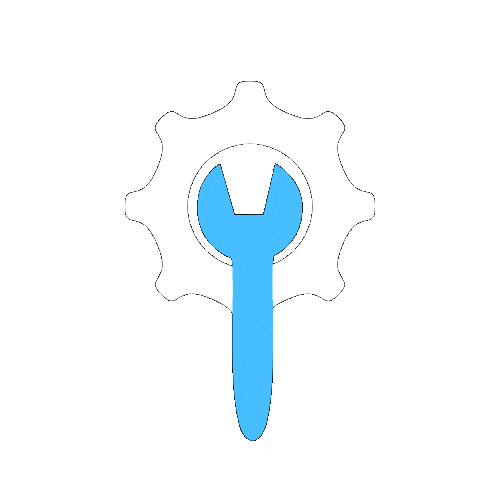
Affiliate marketing is one of the most popular ways of online advertising, especially in the gambling sector. Over the years of its existence, one has been facing a range of challenges able to cause significant damage to all participants of the CPA network. Jan Sammut, a speaker of coming Blockchain & Bitcoin Conference Cyprus, explained in the interview about the role of blockchain in the modern digital economy, the way to eliminate weaknesses of advertising networks using smart contracts and to expand the audience of your project as fast as possible.

— Jan, according to Linkedin, you founded your own blockchain project, RefToken, after several years of working as a manager in large companies. Why did you decide to link your personal business to blockchain? Was there a turning point, or were you deliberately and persistently working on it?
— It was definitely a combination of the two. RefToken came about as a solution to several pain-points that have been afflicting the online marketing industry more or less since the first referral link was created. My background is in the online gambling industry, which depends on affiliates for between 40−80% of user acquisition (depending on brand recognition and market). Despite the importance of this marketing channel, it still relies on platforms built on decade old technology which are very prone to abuse from malicious actors. Discovering Ethereum's smart contract functionally was the moment when all the pieces of the puzzle fell into place and I realised that this technology offers the basis on which a trustless, fraud proof marketing tracking solution could be built. Things moved pretty fast from that point onwards as the team has years of first hand experience in the space, so we simply set about building the platform that we knew the market needs.
— RefToken project is an affiliate marketing technology based on smart contracts. What do you think are the advantages of blockchain for affiliate marketing? And how can decentralized technologies change it?
— Smart contracts are the silver bullet that resolve most of the pain-points I mentioned previously. These can be summarised as follows:
- Merchants withholding payments to affiliates — This is more common than people think, and whilst it usually boils down to malicious merchants, it is sometimes caused by macro factors such as the Black Friday incident in poker which saw affiliates lose hundreds of thousands of dollars in commissions that still have not been paid till this day. On the RefToken platform all campaign funds are held in an escrow governed by a smart contract. This ensures that affiliates are paid once their referrals satisfy the defined conversion requirements
- Cash flow issues — The current affiliation model is one where affiliates are paid on a monthly cycle. As affiliation is entirely marketing driven, the ever increasing marketing costs are causing cash flow issues in smaller players, forcing consolidation in the market and reducing competition. RefToken resolves this by issuing payment the instant an affiliate's referral satisfies the conversion requirements specified in the governing smart contract.
- CPA fraud — The high CPA commissions offered in verticals such as gambling, forex, insurance, mortgage loans etc are a very strong incentive for malicious affiliates to incentivise user behaviour. For example, an affiliate on a € 200 CPA deal can offer users € 100 to sign up to a casino and deposit € 80. Netting him a 100% ROI at no marketing cost. RefToken's platform has an in-built drag and drop smart contract creator, which will allow merchants to specify complex behavioural conversion requirements. This would eliminate most non-organic usage, and make it unprofitable for affiliates to artificially satisfy conversion requirements.
- Skimming — This is also more prevalent than commonly thought. Current affiliate platforms rely on the merchant uploading their sales data on a daily basis. This presents merchants with the very tempting opportunity to skim on sales figures. Sometimes the skimming is rooted in operational corner-cutting. Example, net revenue calculations are not disclosed, and very often include arbitrary fees. For example a merchant operating in several countries might set the tax rate at the highest amongst all markets. With RefToken, our wallet sits between the user and the merchant, eliminating the opacity in the current model, and making all data auditable by both parties.
— On October 16, your project started an ICO. How new to you was the experience of organizing a token sale? In what way did you find it useful? Was there anything that caused difficulties?
— Fortunately our pre-sale went very smoothly. We have built a custom wallet for our users, which while costly, eliminates most attack vectors and possibilities for user errors. We did learn a huge amount throughout the process, and have decided to launch an ICO hosting company out of Malta which would offer a turn-key service from company incorporation to exchange listing.
— As a manager, you gained experience in various business areas. In your opinion, which sectors would benefit the most from transitioning to blockchain?
— Public records, voting, identity and remittances are probably the best candidates for the current state of the technology. We are still in the very early days, and should see its suitability grow exponentially as scaling solutions are rolled out and transaction fees are reduced. The paradigm shift will come when blockchains will begin to cross interact and port services across each other without the user needing to acquire native tokens for each product they use.
— Your company is registered in Malta. Why did you choose specifically this jurisdiction? What are the advantages of Malta for ICO startups today?
— Malta is a fantastic place for blockchain start-ups. The government is determined to replicate the island's success in online gambling and finance with our industry. Therefore, the regulatory regime is very attractive, with significant tax advantages over any other Eurozone member. The workforce is highly educated and are native English speakers, and the government has an exceptional grants program in place.
— The topic of your presentation at Blockchain & Bitcoin Conference Cyprus is «Supercharging blockchain adoption». What's behind this title? What do you mean by «Supercharging»?
— Supercharging is a term that I borrowed from my passion, which is racing cars. Supercharging is a way of dramatically improving the efficiency and power output of an engine. In the context of my talk, it refers to the techniques we will cover that will empower blockchain businesses to rapidly scale their user base.
— Will centralized technologies really become a thing of the past? Why do you think they will lose to smart contracts and blockchain?
— I believe that there will always be a place for both centralised and decentralised technologies. Decentralisation is a great thing, when it adds features such as transparency, auditability, consensus or faster transactions, to a product, however not all challenges can be fixed by slapping a blockchain to an application. At an enterprise level I envisage a class of applications running on tokenised, permissioned blockchains emerging in the medium term.
Have questions or want to order services?
Contact our consultants:
- e-mail: manager@casino-market.com
- feedback form.
Check the information used to contact us carefully. It is necessary for your safety.
Fraudsters can use contacts that look like ours to scam customers. Therefore, we ask you to enter only the addresses that are indicated on our official website.
Be careful! Our team is not responsible for the activities of persons using similar contact details.







